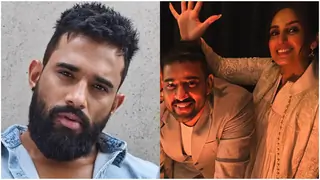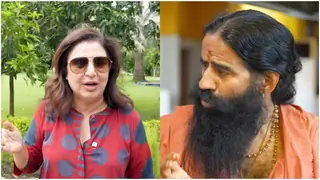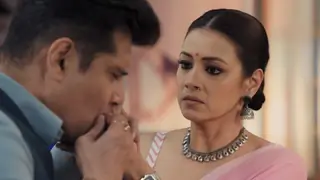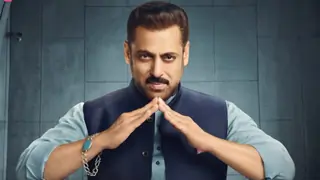Originally posted by: Samanalyse
You are right; there is a frequent misuse of the word feminism on this forum, and in the internet in general. As you rightly pointed out, it's a movement that seeks universal equality. What we need to remember though, is that femnism is also a movement that is constantly evolving. Intersectional feminism is a more recent part of that evolution, the idea that feminism, or equality, can look very different to different people, and that it is not up to one group of women to decide what feminism or equality means. That is why intersectionality is all about inclusiveness -- it allows the discussion, for example, of why women might choose to wear a burqa or a hijab when it seems like a symbol of patriarchy to other women, or how even the definition of "woman" needs to be expanded to include trans-women and how, even though we are all women, we have to acknowledge that some of us enjoy more privilege than others becasue of race or orientation.
This show certainly has its regressive elements (because I am politically very liberal, and no media in any language really matches up to my ideal portrayal), but for the most part, I see it as a win for feminism on Indian TV, because of the variety and complexity of female characters, and because of the believable fallibility of the male characters. Most importantly, this show addresses a very sensitive issue for Indian society -- the toxic mother-son relationship, and dismantles the ideal of "mother" we have worshipped for so long. I don't see the show promoting Ishwari's behaviour as much as I see it exploring her character as a template for so many Indian mothers, who suffer under the dictat that they are not allowed to express their feelings but must maintain the appearance of selfless paragons of sacrifice all of their lives. Ishwari's character, shows us the ugly results of the repressed emotions many of these women nurse, and how they manifest as manipulation, fear, bitterness, and envy. Their sons become their eyes and ears to a world that they are cut off from, and they feel strongly entitled to his loyalty. Ishwari is an incredibly strong and intelligent woman stuck in system that disadvantages her, so she finds indirect ways to exercise her will.
The sons of these strong, dominating mothers are always double-edged swords. On the one hand, they usually have an inherent respect for women, because they have seen their mothers do everything a man would, but on the other, they also have this possibly toxic co-dependence. I have argued and stand by the assertion that Dev is the most feminist male lead I have seen on Indian TV. I am aware that not many share this opinion, and I am certainly not erasing his other glaring flaws (people pleasing, short-term thinking to name a few), but he does have a fundamental belief in the parity of men and women. Between the two, I would say Dev was the one who more clearly expressed the desire for a progressive and equal marriage, while Sona set out on her mission to impress Ishwari and be the perfect Dixit bahu. If anything I think Dev overestimated Sona's capabilities, which led him to take such a laid back approach to her integration into the household. Sona could have been more open about her difficulties, and Dev could have been less obtuse.
Now, coming to Bijoy, I think it's unfair to use the term "compare" when talking about Bijoy and Ishwari. It's not a race about who was better or worse as a parent, but more about understanding how their respective ideals and actions affected their kids. I found two things Bijoy did highly upsetting from day one. The first was his reaction to Saurabh's business. Why was it so embarassing for him to be selling lingerie if he was doing honest business? That was incredibly judgmental and anti-feminist thinking on Bijoy's part. Second, Bijoy never accepted Sona and Dev as a unit, integral for Sona's happiness. He always saw Sona's happiness as an individual and Dev was either in support or against it. Asha on the other hand, had her finger on the pulse where she understood that Sona's long-term happiness lay in fulfilling this relationship with Dev, so it was important to protect them as a unit to protect Sona's happiness.
Bijoy held his children to arbitrary standards of success, and in that way, was kind of like the second-wave of feminists who thought they could define feminism based on their experience alone. Bijoy has excellent values as a person, but he just needs to check his privilege; he has had education, family support, and lifelong stability but he was expecting the same standard of behaviour from people who had none of those privileges. I am not suggesting that Bijoy didn't work hard or didn't earn his keep, but he needs to acknowledge what helped him get there. Asha that way had a much more intersectional approach, understanding that everyone doesn't express themselves in the same way because they have such different experiences. In the end, feminism is about not judging people, no matter how much their views oppose your own, no matter if you see that they are reproducing a system that oppresses them. The first step to change is preparing yourself to listen to views that might challenge your own, and accepting that your views are not universal but shaped by your particular experiences.
In the end, this story is a win for feminism becasue it is raising these questions in the first place, instead of leaving us to be comfortable in our own beliefs. If it does nothing else, I am happy that these discussions opened up.


































